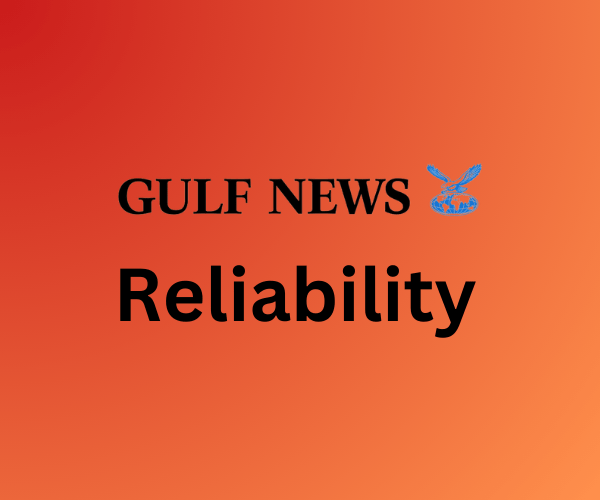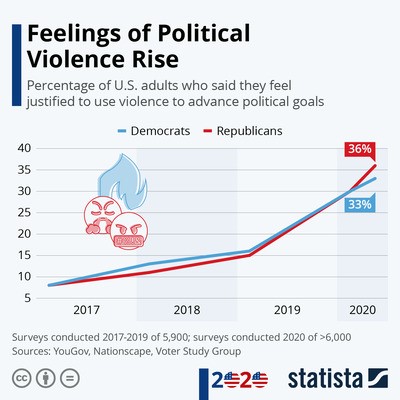
Gulf News has been found to be a questionable source, stemming from ratings across various sources and reputable industry ‘auditors’, so to speak. This has resulted from findings that Gulf News occasionally utilized poor sourcing, lacked transparency, promoted state propaganda/state censorship, and variously failed fact checks. Part of this belief is influenced by a 2022 analysis from Reporters Without Borders, in which they ranked the United Arab Emirates (UAE) 138/180th in their Press Freedom Index, citing that authorities can and often do censor local or foreign publications, especially if they criticize things such as domestic politics or the economy. Furthermore, Gulf News has faced backlash for publishing articles with headlines that have strong, emotionally loaded language, and for selective coverage – focusing on a positive tone – of the Sheikh.
Considering its reputation, the publication at Gulf News is not always inaccurate and typically isn’t. It has been praised for doing an excellent job of posting some articles that are not erroneous or biased. Is Gulf News as wrought with bias and a lack of trustworthiness as some people believe? At Biasly, we endeavor to evaluate the accuracy and dependability of all media outlets. Let us investigate the reliability and accuracy of Gulf News.
Does Reliability Matter?
Reliability, in general, refers to how trustworthy or accurate information, or in this case, a news source is. If we consider this definition, it quickly becomes clear why reliability is important in media sources. If we can’t trust the things we read then there isn’t much of a point in continuing to consume content from that source, after all. So how exactly can we gauge the reliability of a news source anyway?
There are several potential measures of reliability to look out for when trying to determine whether a media source is reliable or not. Red flags for an unreliable article can include the presence of wild unsubstantiated claims, facts dependent on other unreliable sources, heavy use of opinionated language, and more. Some indicators of a reliable news source, on the other hand, include things like:
- Absence of subjective/opinionated language in articles
- Credible sources cited (e.g., neutral sources, .gov, .edu websites)
- Facts and statistics backed by multiple relevant outside sources
- Use of primary sources when possible (e.g., interviews, quotes)
- Information that remains consistent across news sources
So How Does Gulf News Fare in its Reliability?
The political reliability index developed by Biasly objectively assesses news organizations’ accuracy and trustworthiness. Gulf News’ overall Reliability Score has been rated as ‘Fair’ by Biasly.
Gulf News’ Fact Analysis Score is N/A, as Biasly’s analysts have not rated the facts in the news source to this point other than what is found in this article in lower sections.
Gulf News’ Source Analysis Score is ‘Fair,’ which suggests readers can trust some of the sources, links, and quotes provided by the news source. This score, which is based on A.I., focuses on assessing the quality of sources and quotes used including their number, lengths, uniqueness, and diversity.
However, since these scores are based on percentages and averages, individual articles could be more or less trustworthy depending on the context, author, and other factors. Our findings show that Gulf News’ reliability is mostly but not all factual because they have retracted several stories in the past or had pieces that were not factual.
Let us analyze the supporting data for Gulf News’ rankings and discuss what to watch out for while searching for trustworthy news sources.
Gulf News Accuracy and Reliability
The credibility of news organizations is significantly impacted by bias and political orientation. Like some other media organizations, Gulf News has occasionally been accused of prioritizing the state’s agenda above facts. We can evaluate the integrity of Gulf News’ stories and deduce how well the publication supports assertions with evidence, and see whether this is indeed the case. We will check for selection and omission bias as we assess the articles’ correctness and factuality.
Selection bias is when stories and facts are selected or deselected, often on ideological grounds, to create a narrative in support of the new sources’ ideology. Omission bias, on the other hand, is when different opinions and political views regarding a situation are left out so that the reader is only exposed to the ideological perspective supported by the author. It’s important to keep in mind these two types of biases when trying to assess an article’s level of accuracy.
Biasly assigns a percentage score to accuracy, with one being the least accurate and 100 being the most. Ratings are calculated by weighing assertions with supporting evidence, the number of reliable internal sources, and the number of reliable external sources employed. A full page at Biasly’s website includes dependability and accuracy ratings for newly released Gulf News stories. As we previously stated, according to the reports analytics have assessed, Gulf News has a Fair reliability score. This score can vary from article to article, though, and the most extreme variations in dependability are caused by bias, notably omission, and selection bias. Consider another extremely popular and influential Middle Eastern media source, Al Jazeera, which has a “Medium Liberal” Bias and a “Good” analyst reliability score according to Biasly. For example, they had one article that had a “Good” reliability score titled, “The ICJ opinion on Israel’s occupation leaves the US facing a hard choice,” and another article called, “The ‘ungoverning’ of Kenya,” that had a “Poor” reliability score. As a result, stories displaying heightened political leaning are less reliable than neutral ones. An article such as this one – displaying a serious critique of the Kenyan government – accordingly did not refrain from inserting sentiment, contributing to factors in the reliability score.
For instance, this Gulf News article titled, “Controversial opening show at Paris 2024 Olympics: Christians outraged at Last Supper re-creation” offers some insight into the quality and number of opposing sources Gulf News may typically employ. Concerning the selection and omission bias, the author Stephen N.R. does a good job of getting plenty of sources who opposed the ceremony and the reasons why they did so, numbering 16 in total. Meanwhile, in terms of sources from those who either defended the ceremony or had explanations to offer regarding its true nature, only three exist. The primary of which is Thomas Jolly, the art director in charge of running the show. When asked about some of the backlash, he says in an interview:
“Our subject was not to be subversive. We never wanted to be subversive. We wanted to talk about diversity. Diversity means being together, we wanted to include everyone, as simple as that.”
This article portrays a moderately conservative stance, mostly due to providing a considerably higher number of sources in favor of one side of the argument versus the other. However, N.R. fails to completely balance his sources, as seen in the discrepancy among opinions highlighted in the article. N.R. can certainly have maintained a neutral stance as an author whilst simultaneously providing a more holistic view of the issue should he have included more commentary from those who believed that the 2024 Olympics opening show was uncontroversial. Therefore this article can be considered mostly reliable.
We will take a closer look at more examples like this below, providing a further investigation into the reliability of Gulf News’ articles. This will include its use of selection bias, omission bias, and the quality of its sources and facts used.
Analysis of Reliability in Gulf News’ Online News Articles
Gulf News online news articles, while typically adopting a more commercial and holistic approach compared to traditional news outlets, aim at providing standard, objective reporting. While they may occasionally lean towards a particular ideology, it’s essential to distinguish their regular online news content from their opinion pieces. It’s when these lines blur that the credibility of information can come into question.
In the past, Gulf News has faced controversy over its coverage, particularly concerning narratives surrounding the Sheikh. One article, “Sheikh Mohammed bin Rashid praises the patriotic and humanitarian stands of Sheikh Mohammed Bin Zayed,” was presented as an online news article with standard reporting but came under scrutiny due to its selective tone and perceived bias. This incident raised questions about the balance between delivering accurate news and appealing to an audience predominantly aligned with Sheikh Mohammed bin Rashid. A further example could be seen in “Learn lessons of success from Sheikh Mohammed bin Rashid,” given its utter lack of any criticism of him. This underscores the ongoing challenge in digital journalism to maintain credibility while engaging diverse reader bases with differing political views. Typical online news articles are devoid of opinions and leanings from the author, but occasionally, depending on the news source, they may exist.
Quality of Sources and Facts Used
Gulf News can be good at using reliable sources from both sides of the ideological divide and citing facts as evidence, however, this is not the case for every article. For instance, think about, “How extreme rhetoric amplified by social media is increasingly leading to polarisation and real-world attacks.” In this article, they only used 9 quotes. Of those 9 quotes, four of them are short, three of them are medium-length, and two are long quotes. Longer quotes can indicate higher reliability if the source is reputable.
In addition to that, the author’s 7 sources for the article were as follows:
- Australian Prime Minister Anthony Albanese (Left-leaning)
- Former Ecuadorian Vice Presidential Candidate Andrea Gonzalez (Left-leaning)
- Slovakian President Peter Pellegrini (Right-leaning)
- Polish President Andrzej Duda (Right-leaning)
- Dutch Politician Geert Wilders (Far right-leaning)
- Italian Prime Minister Giorgia Meloni (Right-leaning)
- British Politician Kim Leadbeater (Left-leaning)
The number of sources used seems to be fair, as well as the diversity and credibility of such. This article greatly benefits from its inclusion of sources from both sides of the aisle, in their respective countries of course. Nevertheless, the article is not entirely focused on actual happenings, such as the recent assassination attempt on Donald Trump, but rather sprinkling examples here and there regarding exemplifications of similar political violence. Much of the bias in this case stems not from their choice of sources but rather their depiction of President Biden versus former President Donald Trump, wherein Trump is “a defiant candidate,” who is a “potent contrast to the hesitant” Joe Biden. Furthermore, many of the references are right-leaning, and a few are selected given their choice to echo the “Trump camp’s defiance.” A lack of holistic facts and mass reliability on opinionated sources contributes to a lower overall quality score and right-leaning rhetoric for this article.

Source: Statista
The article from above, “Learn lessons of success from Sheikh Mohammed bin Rashid,” is an example of partial misinformation as the story was primarily based on a book written by a scholar who closely followed and interviewed the Sheikh – delivering insight into his leadership style and operational successes. However, the glaring issue here is that this publication is likely to be riddled with biases, because who realistically agrees to inform a book conveying themselves in a negative light? The main factor that does in fact uphold the credibility of the article, however, is that the author of the book seems to be an impartial source. Regardless, the article fails to suggest any criticisms of the writing or the Sheikh, which may also be a reflection of media censorship laws threatening UAE publications such as Gulf News.
Selection and Omission Bias
In a more extreme example from Gulf News, we can see an author portray staunch disapproval of same-sex relationships, in an article shockingly not listed as an opinion piece. Although published in 2010, the writing nevertheless reflects the attitude of the UAE from a current standpoint, as most laws have not yet changed. The article, “Too close for comfort: Homosexuality in schools,” by Salam Al Amir, tends to focus on the opposition to these relationships among worried parents, the harsh legal factors contributing to these sentiments, and the employment of extremely biased/loaded language. But, he chooses to omit other relevant facts, such as LGBTQ reforms taking place in nearby countries, the beliefs of those pushing for social reform in favor of LGBTQ rights, and more. Here we see the quote used from a university employee who claims to be negatively affected by such actions:
“I am a divorcee and couldn’t handle these things on my own. I feared my kids would become homosexual so I gave them in the custody of their father.”
Throughout the article, Al Amir makes use of extreme language that disparages homosexuals. The author omits the fact that 10 Middle Eastern countries have legalized the practice. Instead, he only focuses on flawed statistics from biased sources claiming unsupported data. This can be seen through Al Amir’s reliance on sources such as random students at the Sharjah University for Women (UOS) whose prejudiced estimates are used as sustaining metrics for the article. Al Amir concludes the article by referencing a doctor similarly opposed to homosexuality, further highlighting the lack of diversity among sources, who offers ‘solutions’ to the “problem” as if it were an epidemic of some sort.
In the article we discussed earlier, “How extreme rhetoric amplified by social media is increasingly leading to polarisation and real-world attacks,” we established that this article faces reliability struggles but does benefit from a fairly diverse array of perspectives. However, the left-leaning/opposing points of view seem to be utilized in a different light than the right-leaning contributors. Any seemingly left-leaning politician was quoted simply to voice concerns over political violence as a general topic, while much of the contrary repeated the same message whilst also adding a political skew to the matter. Most of the sources are allies of Trump, and we can see the careful selection of quotes by the author exemplified in this excerpt from Geert Wilders: “The hate rhetoric from many leftish politicians and media, who label right-wing politicians as racists and Nazis is not without consequences.”
In opinion pieces, issues with factuality, sources, selection, and omission are frequently present. The articles we’ve covered so far are mostly biased and exclude adequate relevant background and information that may contradict the author’s position. As a news organization with a center-right slant, Gulf News has a small incentive to continue appealing to American conservative viewpoints to maintain the interests of its marginal right-wing readership. But now that we’ve enumerated typical trustworthiness indications, you may stay current by keeping yourself informed on the most accurate news.
So Is Gulf News Reliable?
Alas, it can be argued that Gulf News is a semi-reliable news source with an adequate reputation for journalistic integrity and some lone exceptions, therefore the degree of truth in its publications fluctuates. The more you research media reliability and accuracy, the simpler it will be for you to spot problems with sources, selection, omission, and factuality. To help with this, you can use Biasly’s News Bias Checker to uncover reliability problems and assist you in finding the most accurate and dependable news.























